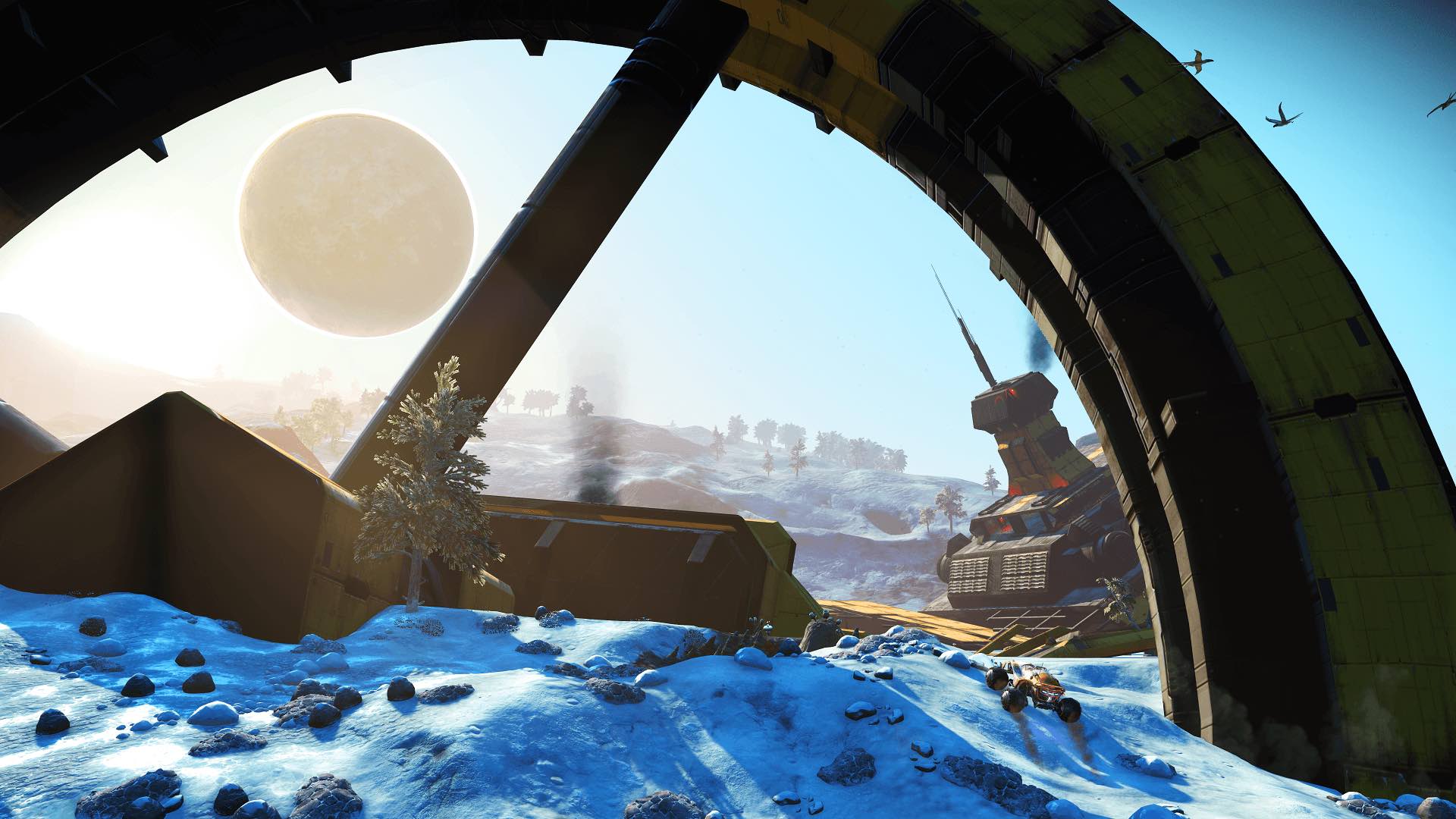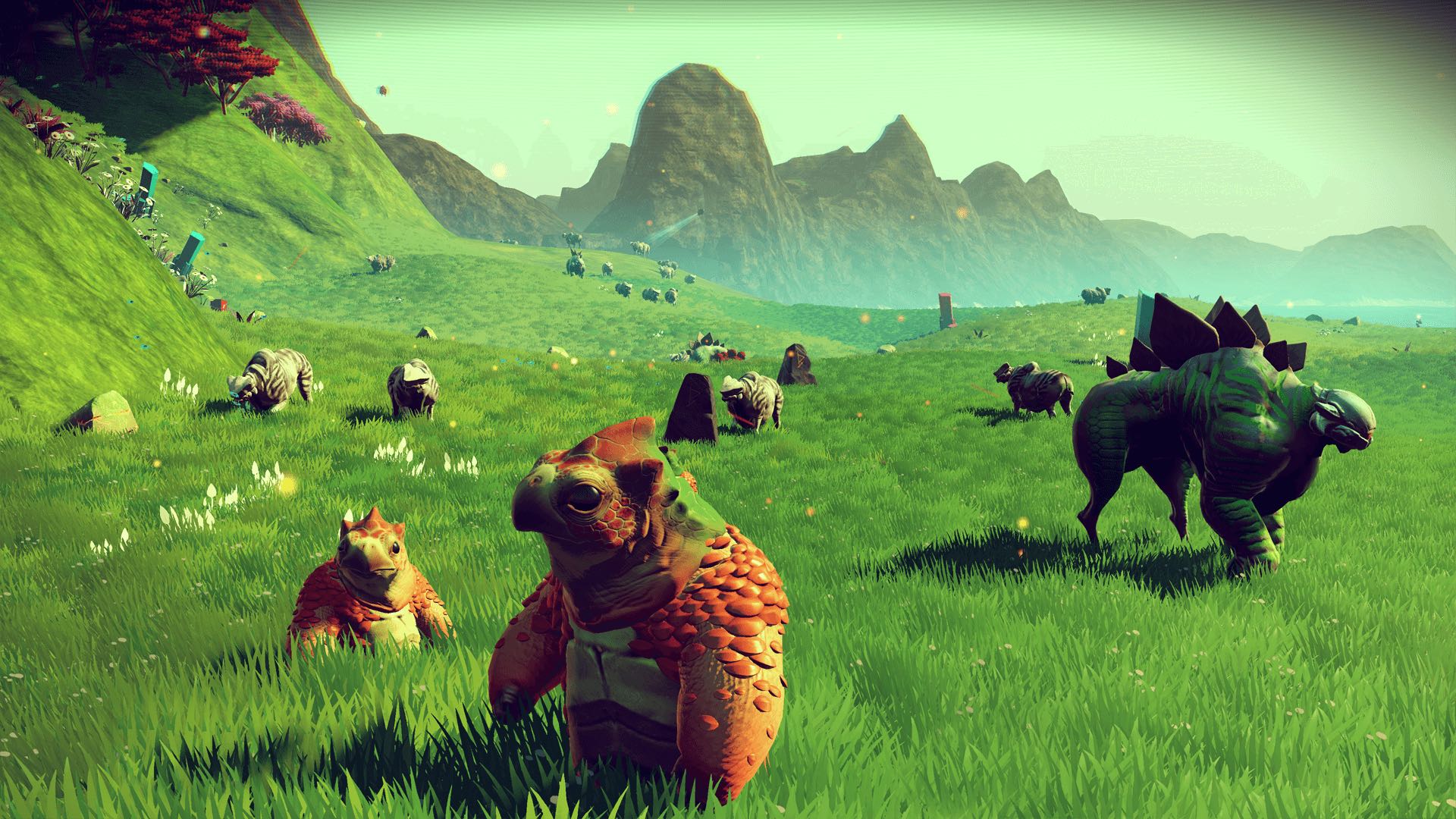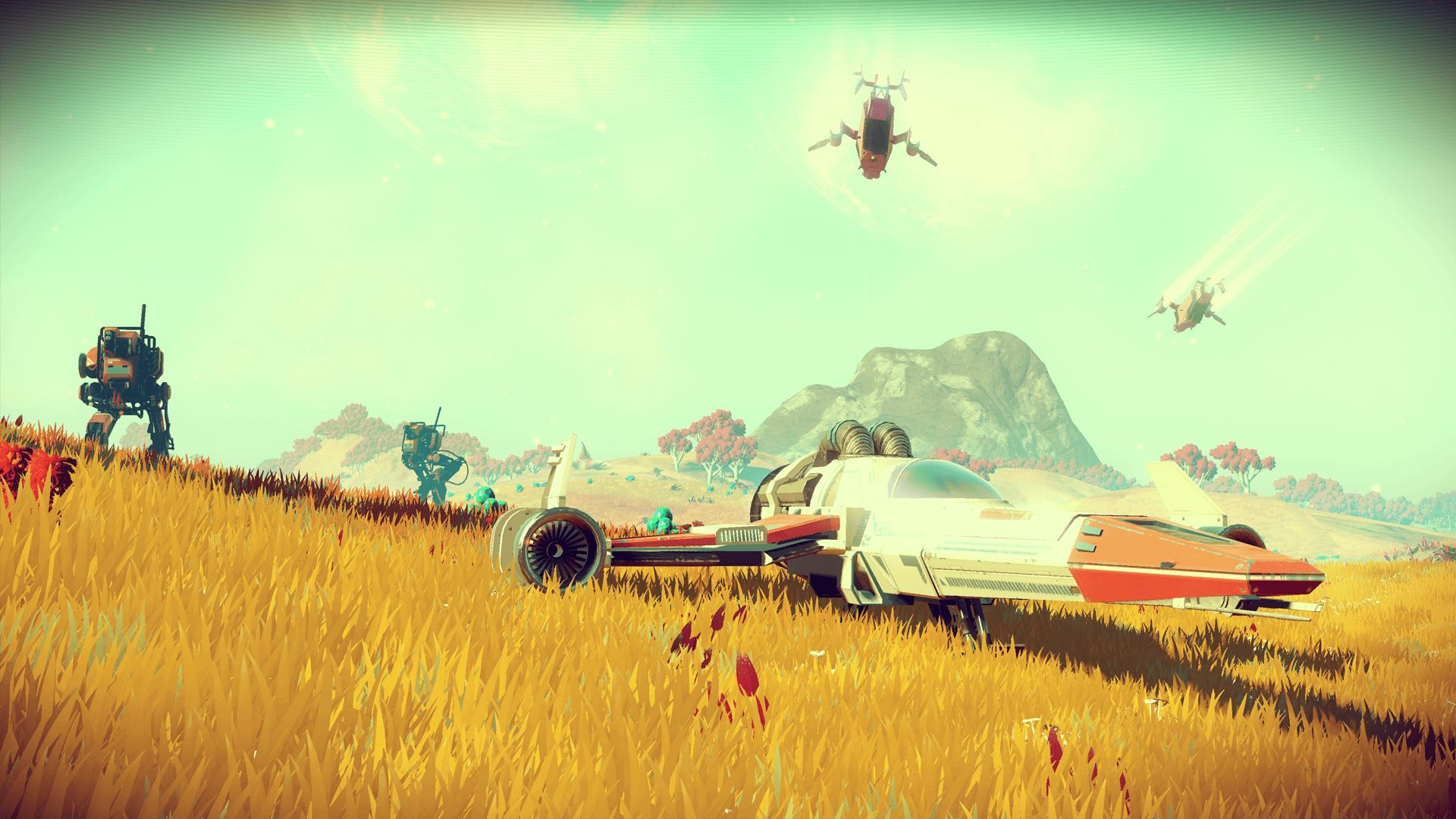The Most Successful Failure
I remember August 9th, 2016 fairly well. It was hot, school would be starting in a few weeks and I had just picked up my preorder of the newest and most hyped game of all time, No Man's Sky. You read that right, I preordered No Man's Sky. If there was ever a time when you should wait until after the review came out before buying a game, this was it. But I did it anyway. Perhaps I was charmed by the idea of sixteen quintillion worlds just waiting to be explored. Maybe it was a chance to take a break from Destiny's daily RNG grind. The most likely reason may have been bad judgement. Whatever the reason may have been, I was one of the many who put in the game disc and experienced the day one version of No Man's Sky. To be honest, I didn't think it was all that bad. Again, maybe it was the sunk-costs fallacy causing a state of denial, or maybe it was a sign of early onset dimentia. Either way, it was a relaxing break from Destiny and there were sixteen quintillion worlds beckoning to be discovered. Except I couldn't, because the pre-order bonuses broke the game, which is a pretty good summation of how No Man's Sky was critically received.

nomanssky.com
The game would crash just like this freighter
They said it was broken, buggy, and Hello Games did not deliver on the promises the svelte and charismatic creator, Sean Murray, had made over the course of its development. The critics weren't wrong. No Man's Sky was all of those things. For a while, it seemed that No Man's Sky would surpass Atari's E.T. and Nintendo's Superman 64 as the "I'd rather play Candy Crush Saga for eternity with my elbow" worst game of all time. Yet four years later, people not only still play No Man's Sky, people are still buying it. So, how did No Man's Sky go from utter failure to successful franchise?
Shigeru Miyamoto has famously been quoted as saying “A delayed game is eventually good, a bad game is bad forever”. This has generally been true throughout gaming history and Hello Games was staring into the bad game abyss with article after article decrying and denouncing the failure of No Man's Sky. It's usually at this point, where the gaming company abandons the game, apologizes to the gaming community and prepares for the lawsuits and eventual bankruptcy. How come Hello Games didn't suffer that same fate? I suspect that it came down to three main things, company culture, company size, and the fans.
The Culture
Going back to quoting Nintendo giants, the late Saruto Iwata said “On my business card, I am a corporate president. In my mind, I am a game developer. But in my heart, I am a gamer.” The same could be said of Sean Murray. Sean's deam job was to become a game developer, a dream he realized when he hired on at Criterion games and worked on the Burnout series (Burnout: Paradise was awesome by the way). Note the distinction, he wanted to become a game developer, not run a business. However, he would get that opportunity when he co-founded Hello Games and unleashed Joe Danger on an unsuspecting public. Joe Danger has a special place in my heart since it one of the few games that Mrs. Incognito enjoyed playing co-op together. Game studios that are founded or managed by gamers at heart are completely different culturally than the AAA studios ran by business execs. Going back to the release of No Man's Sky, what would a large studio partnered with EA or Activision do in response to the negative outcry? Well, we can't be sure, but it whatever they decided would depend more on the bottom line and a potential return on investment than anything else. Large companies tend to minimize risks. Hello Games had already taken substantial risks to produce No Man's Sky. They had bet the company, so to speak, and were also completely invested in the game's success. It's also my personal opinion that Sean Murray knew they had not delivered on their promises for No Man's Sky prior to release, but that they could. Hello Games went back to work and went dark to the world. That they could get the company united to fix No Man's Sky when all seemed lost is a testament to the company culture at Hello Games.

nomanssky.com
Game reviewers complained of the lack of grass in the early game
The Size
To game journalists, the silence was rather jarring and speculation was rampant. However, this is where the size of Hello Games as a company was both an asset and hinderance. According to Murray, when Hello Games started working on No Man's Sky the company had six employees. By release day that had expanded to fifteen. When your company is a company of six or fifteen, things like public relations and other non-essentials such as layers upon layers of middle management don't exist. Had Hello Games been the size of Bungee or Treyarch with hundreds of employees, it would have been impossible for the company to hunker down and focus on making No Man's Sky the game they knew it could be and should have been. I had the unique misfortune of being in a department managers meeting for eight hours as we tried to come to an agreement as to what our department mission statement should be. It took us eight hours of pain and misery to write a one sentence statement and most of us agreed to the final wording not because we liked it, but because we just wanted to get out of the meeting. Meetings like that are a stain on companies larger than Hello Games and not having that corporate overhead frees up a lot of time to focus on actual productive work. It's often amazing what a small team of dedicated people are able to accomplish when left alone and fully caffeinated. Another possible factor due to their size was the fact that Hello Games did not have an enormous payroll, meaning they had enough cash on hand to continue operating when GameStop was offering $3.00 for a used copy of the game. No Man's Sky preorders and first day sales were good. Well, good enough for a small-size company like Hello Games to keep going at least.
The Fans
Even through all of the negative press, which took turns collectiving pile driving bad takes on No Man's Sky and Sean Murray during the first few months after the game's release, there was always a small and dedicated group of fans who never gave up on the game and what they believed it could be. In order to better understand their determination, we need to pause and define what makes a bad game. Bad games come in all sorts of bad states. Some games are bad because the game engine is unstable and can brick your console (Anthem) while others may be bad because it is just a shameless money grab based on a movie or celebrity (E.T. or Superman 64). These are just a couple of examples and there are more. In the shameless money grab examples, usually little to no thought is put into the heart of the game so much as plastering the movie or characters all over the screen. By heart of the game, I'm referring to the essence of what makes a game fun, or entertaining to play. You may not be able to quantify or express why you like a particular game, but you know it when you experience it. Let me give you another example, when I was first playing Super Mario Galaxy on the Wii and I was being chased around a little planet by a huge pirhana plant boss I had a huge smile on my face and I knew right then that the game was special. Here's where there was a silver lining to No Man's Sky. The game had heart. It was a little hard to find at first, but devoted fans could see there game wasn't a lost cause and that future updates potentially could overcome the release shortcomings.
The Money
There is a potentially forth possible reason that No Man's Sky is still going strong and it is one of economics. Each and every update starting from Foundation released back in November of 2016 to the one released this week (as of this writing - August 2020) and been completely and absolutely free to each and every owner of No Man's Sky. Maybe this is because Hello Games felt guilty about the release. Maybe Hello Games felt they had an ethical obligation to deliver on their promises or maybe Sean Murray's heart grew three sizes in August 2016. Whatever the reason, the game has been under a continuous cycle of updates that have gone beyond the initial promised features and into new content. Unlike free-to-play games, there are also no microtransactions on in-app purchases. How many game executives would have predicted that a game studio could survive on one game for four years giving away DLC and no transactions other than purchasing the game? Yet Hello Games has managed to do just that and thrive (they're working on a new game to be released this year). There may be more games that rose from the ashes of failure, but I can't think of any. If there was ever a game that has earned the title of Most Successful Failure, I believe the No Man's Sky is that game.

nomanssky.com
Four years later and No Man's Sky is looking good and COVID free
Not only is No Man's Sky a remarkable success, its success has had an influence in the industry. Two and a half years after the release of No Man's Sky, Bioware and EA decided that they would throw their hat in the rings of buggy and unfinished titles with the release of Anthem. I did not pre-order Anthem, but I did pick it up on a sale less than a month later just to see if it really was as bad as everyone said. Probably bad judgement again, but once again Anthem is a game with some heart. EA and Bioware has said that it has a team of 30 committed to making Anthem 2.0 a long and complete overhaul. I suppose that if they hunker down and fully caffeinate there is a good chance that Anthem may join No Man's Sky in the successful failure hall of fame. But consider this, would Bioware have made the effort with Anthem had not Hello Games blazed the trail and stared down Miyamoto's quote about bad games and said "not on my watch"?

Comments